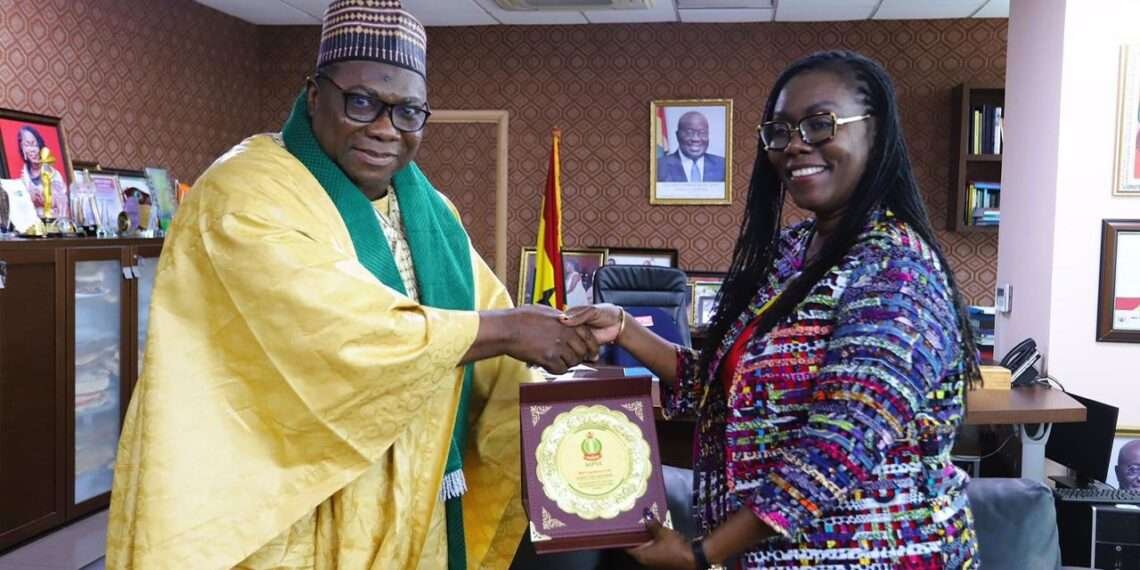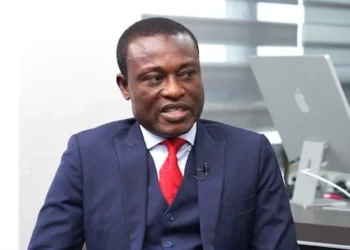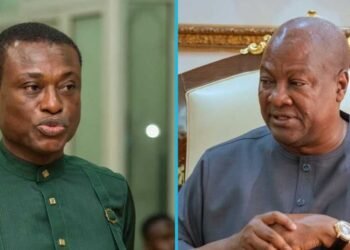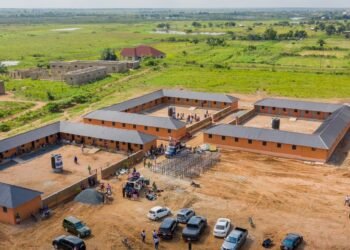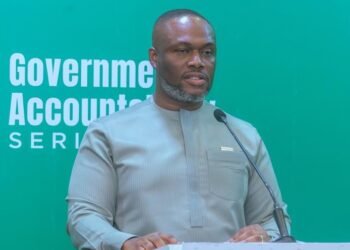In a significant step towards fostering regional collaboration and knowledge exchange, the Ministry of Communications and Digitalization (MoCD) of Ghana welcomed a delegation from the Nigerian government.
The leader of the Nigerian delegation, Mr. Suleiman Muhammed Kabir, who also serves as the Secretary and Director of Administration, emphasized the purpose of the visit. He explained that the team is on a study tour as part of the Presidential Initiative on annual thematic issues, focusing on the digital economy, youth empowerment, and sustainable job creation.
“Our team consists of individuals from various sectors, including the military, academia, diplomacy, and the private sector. We are here to learn from Ghana’s success stories and experiences in leveraging digital technologies to drive economic development.”
Mr. Suleiman Muhammed Kabir
Mr. Emmanuel Ofori, Head of Policy, Planning, Budgeting, Monitoring, and Evaluation (PPBME) at the MoCD, provided an overview of Ghana’s journey towards digitalization.
“In 2021, we added digitalization to our national agenda, to create a comprehensive approach to the digital economy,” Mr. Ofori explained. He added that President Nana Akufo-Addo established a central advisory body to ensure coordination and interoperability among various digital initiatives.
The Ministry of Communications and Digitalization, under the leadership of Minister Ursula Owusu Ekuful (MP), has been instrumental in driving this agenda. Minister Ekuful’s passion for digital transformation has been a key factor in the Ministry’s achievements.
“We have made significant progress, but we still face challenges, particularly in reaching remote areas,” Mr. Ofori acknowledged.
“The Ministry’s goal is to ensure that everyone, regardless of location, has access to digital services and can participate in the digital economy. We believe that by working together, we can achieve this vision and create a more inclusive and prosperous society.”
Mr. Emmanuel Ofori, Head of Policy, Planning, Budgeting, Monitoring, and Evaluation (PPBME) at the MoCD
Mr. Ofori also noted the impact of digital technology on education. Previously, education relied heavily on physical materials such as textbooks and library books, which were often stolen or lost. However, the advent of digital technology has made access to educational resources more convenient and efficient. Students can now access a single digital book shared by everyone, eliminating the risk of loss or theft.
Additionally, Mr. Ofori explained the digital technology has enabled online learning, allowing students to learn from anywhere, without the need for physical classrooms or universities. This shift has been widely recognized, with certificates and credentials being awarded remotely.
Policy and Strategy Evolution

The transformation driven by digital technology necessitates a change in policy and strategy. Mr. Ofori emphasized that old policies are no longer relevant as they did not anticipate the rapid advancements in technology. New policies are needed to drive innovation and investment in digital infrastructure, such as computers in schools and cloud technology.
“As a country, we have made significant progress in embracing digital technology, and our government has implemented policies to support economic growth.
“It is essential that we continue to adapt and innovate, ensuring that our policies and strategies align with the rapidly changing landscape of education and technology,”
Mr. Emmanuel Ofori, Head of Policy, Planning, Budgeting, Monitoring, and Evaluation (PPBME) at the MoCD
The event was attended by Mr. Alfred Nortey, Director of Finance and Administration (F&A), other staff members of the MoCD, and delegates from the Nigerian government. The discussions provided a valuable platform for the exchange of ideas and best practices, highlighting the importance of regional cooperation in achieving digital transformation.
As the delegation continues its study tour, the insights gained from Ghana’s experiences are expected to inform and enhance Nigeria’s efforts in building a robust digital economy. This collaboration underscores the commitment of both nations to harness the power of digital technologies for sustainable development and economic growth.
READ ALSO: Lack of Funds in the Music Industry, a Common Misconception

